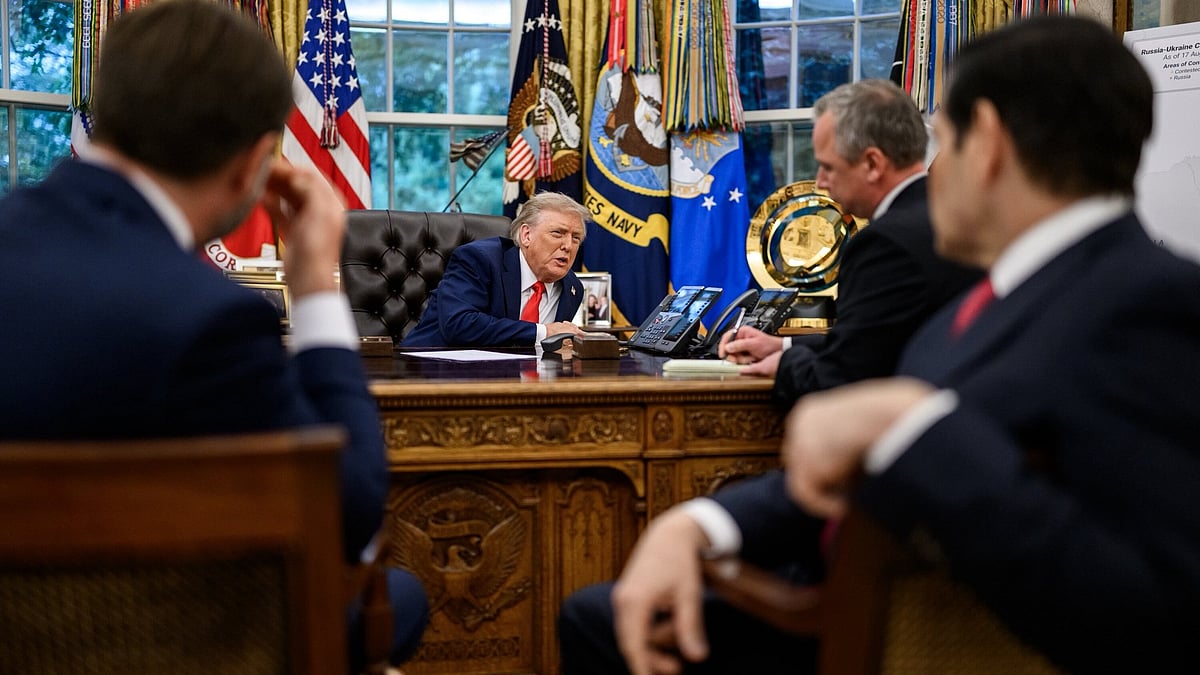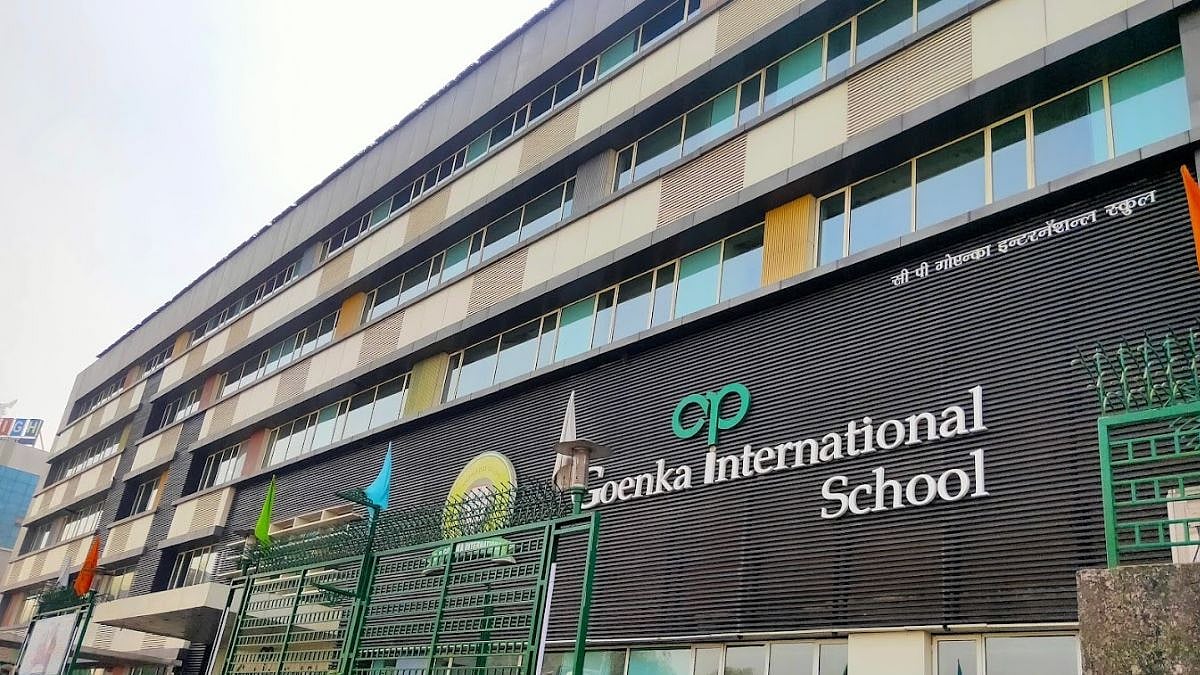The Elgar Parishad convention organised by retired Justices BG Kolse Patil and P B Sawant to commemorate the 200th anniversary of Battle of Bhima Koregaon in Pune on January 1, 2018, can be termed as an event that has now evoked ‘international interest’.
The last three years has seen Maharashtra police, and later the National Investigation Agency (NIA), carry out a probe into the violence post the convention in 2018 that claimed a life and injured five others, and named the outlawed Communist Party of India (Maoist) as the organisation that fomented the violence.
The violence and subsequent probe might not have generated the kind of ‘international interest’. But the death of an ailing 84-year-old Jesuit priest Father Stanislaus Lourduswamy, popularly known as Father Stan Swamy, while in judicial custody has seen the international community including the United Nations (UN) human rights chief expressing despair. It prompted the Ministry of External Affairs (MEA) to also issue a statement, possibly a first of its kind.
There is little to be discussed on the legalities involved with the Bhima Koregaon case as three chargesheets have been filed and 16 persons including the likes of Rona Wilson, Shoma Sen, Anand Teltumbde, Gautam Navlakha, Sudha Bharadwaj, P Varavara Rao, Hany Babu Tharayil, Arun Ferreira, Vernon Gonsalves, Surendra Gadling among others have been arrested. A look at their professions indicates that those arrested range from academicians, lawyers and poets who were ostensibly fighting for the rights of the tribals or dalits in the country.
Without getting into the merits of whether those arrested had any links with the outlawed CPI (Maoist) cadre, one questions how CPI (Maoist) which supposedly was restricted to the jungles of Dandakaranya, was formed in 2004, and then found its way to prominent cities in Maharashtra. The migration of educated individuals moving to the jungles and then back to cities has been a constant since decades.
The Maoist cadre isn’t a recent phenomenon. The roots of the CPI (Maoist) were sown as early as 1967 when West Bengal saw a peasant uprising at Naxalbari with support from communists who were then part of the legitimate political party CPI (Marxist). The uprising was quelled with the intervention of the state’s paramilitary force, but it had turned out to be a radical movement for both the CPI (Marxist) party and the Indian state. Those expelled from the CPI (Marxist) party went on to form the CPI (Marxist-Leninist) party, which by far can be called as the parent body of today’s CPI (Maoists).
The uprising also gave rise to Dakshin Desh which later went on to be known as Maoist Communist Centre (MCC) and went on to establish its roots from Jangal Mahal area of Burdwan district in West Bengal, to 24 Parganas, Midnapore, and later to various districts in Bihar, Jharkhand and in some districts of Odisha.
The Naxalbari uprising set the tone for Srikakulam uprising in Andhra Pradesh, which between 1946 and 1947 had seen the Telangana Rebellion, which lasted from 1967 to 1970. The uprising in its part played a crucial role in the formation of the People’s War Group (PWG) at Karimnagar in Andhra Pradesh on April 22, 1980 by Kondapalli Seetharamaiah, a CPI(ML) leader.
From the late 70’s to the 90’s, these splinter communist groups gained in power as they slowly but steadily reached out to the tribes who lived in remote forests particularly in the states of Chattisgarh, Bihar, Jharkhand, West Bengal, Maharashtra, Odisha and Madhya Pradesh. It also reached out to foreign communist parties in Nepal, Bangladesh and to the erstwhile Liberation Tigers of Tamil Eelam (LTTE).
The PWG were equipped with landmines as early as 1991 when they triggered a blast at Etapalli tehsil of Gadchiroli district in Maharashtra and killed 10 Central Reserve Paramilitary Force (CRPF) personnel and injured 13 others. The MCC which was primarily operating in Bihar and Jharkhand were targeting people from the upper caste Bhumihar community, and did not possibly have the sophistication that the PWG had. It was only in the year 2000 that the MCC used its first landmine to kill 22 persons including 19 police personnel in the first phase of state legislative elections at Palamu in Jharkhand.
Four years later in 2004, the CPI (ML), PWG and MCC came together and formed CPI (Maoist). But it was only five years later in 2009 that the Indian government declared the CPI (Maoist) as a terrorist organisation under the Unlawful Activities (Prevention) Act (UAPA). Was it far too late? Maybe. The PWG, MCC and CPI (ML) by then had formed more than 22 subsidiary organisations each looking after particular domains assigned to them.
Is it a result of subsequent government having not reached out to tribals living in the forests for close to four decades? A trip to remote village in Chattisgarh, Andhra Pradesh or Maharashtra would elicit compelling accounts from the tribals who had never seen a doctor or a primary health care centre for ages. Such is the state of affairs that the average life expectancy was around 50 years.
A trip to Gadchiroli or Bastar would make a person, who has lived his entire life in modern cities which sees development activities being carried out at breakneck speed, feel that he has walked into a world unknown. There are areas which have no roads, no electricity; children haven’t seen Sachin Tendulkar, MS Dhoni or Virat Kohli on television screens. They do not know where New Delhi is or what Mumbai is. They do not have an idea of a mall, neither do they know brands. They don’t even know what an election is, or who the chief minister or the prime minister is.
Their food habits are still primitive where they hunt for wild animals with bows and arrows, dry their meat in the sun and then store to eat in times of crisis. Many have not seen dal (lentils) and rely just on indigenously grown rice, and chutney made out of herbs they pick from the forest. A delicacy for these tribals would be the red ants egg chutney, if they find one while moving about in the forest.
It is in these areas that the educated political activists, who wanted to take up or took arms against the state, found refuge as they ran from localised government crackdown. The peasant uprising as it entered the 2000’s had lost its meaning. Instead, what it found was young cannon fodder among the uneducated tribals who never had a clear vision on why they were wielding a .303 or an AK-47 rifle. One wonders where was the intelligence machinery of the state when these organisations were flourishing in the jungles. Today, the CPI (Maoist) claims an area encompassing certain districts of Maharashtra, Chhattisgarh, Andhra Pradesh and Odisha to be a ‘liberated zone’.
Did the tribals have a choice in the early 80s or 90s? No. Their years of being deprived of basic amenities and education saw hope with the arrival of the educated lot in the jungles. They were being taught to plant paddy, till their land and to grow their own produce. They were being taught to be self-sufficient.
Do they have a choice now? No. The years of protracted war as the outlawed communist organisation say, has left the tribals in a lurch. The government forces see them as threat or as members of communist party, and there is no choice for them but to follow the rules of CPI (Maoist) party if they choose to live in the jungle. Thousands have been killed, and thousands have been displaced. It is this, where one needs to think if we can let this happen to our own citizens? Is ‘protracted war’ the solution? Is there need for unconditional peace talks? Can there be a solution? Only the wise can answer.










